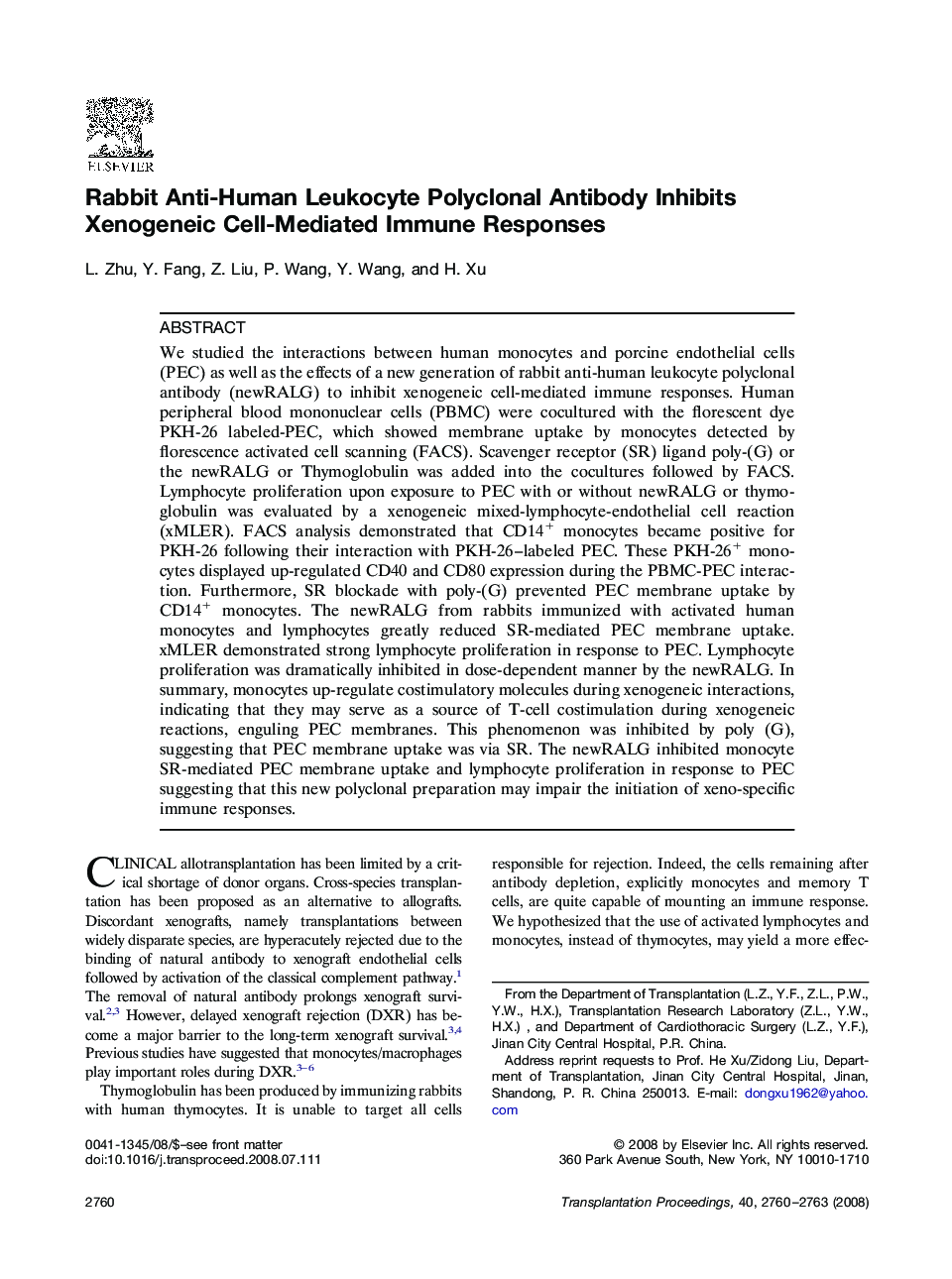| Article ID | Journal | Published Year | Pages | File Type |
|---|---|---|---|---|
| 4262051 | Transplantation Proceedings | 2008 | 4 Pages |
We studied the interactions between human monocytes and porcine endothelial cells (PEC) as well as the effects of a new generation of rabbit anti-human leukocyte polyclonal antibody (newRALG) to inhibit xenogeneic cell-mediated immune responses. Human peripheral blood mononuclear cells (PBMC) were cocultured with the florescent dye PKH-26 labeled-PEC, which showed membrane uptake by monocytes detected by florescence activated cell scanning (FACS). Scavenger receptor (SR) ligand poly-(G) or the newRALG or Thymoglobulin was added into the cocultures followed by FACS. Lymphocyte proliferation upon exposure to PEC with or without newRALG or thymoglobulin was evaluated by a xenogeneic mixed-lymphocyte-endothelial cell reaction (xMLER). FACS analysis demonstrated that CD14+ monocytes became positive for PKH-26 following their interaction with PKH-26–labeled PEC. These PKH-26+ monocytes displayed up-regulated CD40 and CD80 expression during the PBMC-PEC interaction. Furthermore, SR blockade with poly-(G) prevented PEC membrane uptake by CD14+ monocytes. The newRALG from rabbits immunized with activated human monocytes and lymphocytes greatly reduced SR-mediated PEC membrane uptake. xMLER demonstrated strong lymphocyte proliferation in response to PEC. Lymphocyte proliferation was dramatically inhibited in dose-dependent manner by the newRALG. In summary, monocytes up-regulate costimulatory molecules during xenogeneic interactions, indicating that they may serve as a source of T-cell costimulation during xenogeneic reactions, enguling PEC membranes. This phenomenon was inhibited by poly (G), suggesting that PEC membrane uptake was via SR. The newRALG inhibited monocyte SR-mediated PEC membrane uptake and lymphocyte proliferation in response to PEC suggesting that this new polyclonal preparation may impair the initiation of xeno-specific immune responses.
